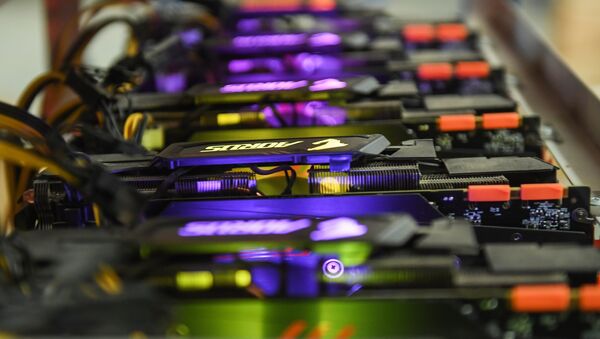Kristian Rouz — Japan's mixed macroeconomic indicators, a drop in factory output, and surging bitcoin and innovative industries have suggested the island nation's economy is gradually shifting away from its export-driven model of GDP growth towards a more sustainable path.
Japan hosted a major blockchain conference in Tokyo earlier this week, which is expected to become a yearly event due to the ongoing rise in crypto mining and trading in the country. This comes as the Bank of Japan (BOJ) has, unlike several other global central banks, defied calls to ramp up regulation or crackdown on digital currencies; with some BOJ officials admitting cryptos have some potential.
"We want to take blockchain beyond financial," Kitao said. "People need to think about how these technologies are being used in real life and how they can improve people's businesses."
READ MORE: Scholars: Trade War Could Provoke Recession in the US in 2019
This comes as Japan's factory output dropped in May, albeit the retreat was less significant than previously expected in the wake of the global trade woes. According to the nation's Ministry of Economy, Japan's industrial production eased 0.2 percent month-on-month, compared to a previously expected 1.1-percent decline.
This might suggest a crypto boom — expected to take place in Japan over the next several years — could truly reignite the economic powerhouse of the island nation.
"Bitcoin is too expensive and people are just holding it and hoping it increases in value," said SBI's Kitao said. "There's a lot of speculative demand around cryptocurrencies, which is why the price is going up so quickly."
The SBI CEO said bitcoin is in for more sustainable dynamics on the open market, which is expected to come into reality once the dust settles after last year's wild swings on the crypto markets. Kitao also said SBI has plans to launch its own crypto trading platform in the coming months.
READ MORE: Japan Gov't, Investors See Economy as ‘Gradually Recovering' after Q1 Slump
Separately, Aaron McDonald of New Zealand-based marketplace Centrality said Japan and the broader East Asia region could become the global driver of growth in innovative crypto and fintech industries, which could produce massive and sustainable revenues in the longer run.
He pointed out that roughly 30 percent of the adult population in Japan uses a digital currency wallet as their daily means of settlements.
"We're focused on the region because people in Japan are far further ahead than the rest of the world when it comes to blockchain and cryptocurrencies," McDonald said.
Meanwhile, last month Japan's unemployment dropped to its lowest level in over 25 years, to just 2.2 percent, according to a report from the Internal Affairs and Communications Ministry. This data suggests Japan's consumer demand is potentially on the rise, which could be an additional driver for the development and adoption of innovative technologies.
"Pressure to increase wages is, if not already strong, certain to get stronger," Yuki Masujima of Bloomberg Economics noted. "Our view is that a pickup in wage growth will eventually feed into faster inflation."
READ MORE: Bank of Japan Weighs Policy Response as Economy Faces Recession Again
"If blockchain is integrated into the Japanese market, it will be a great tool and prevent the market from declining," Tezuka Mitsuru of crypto investment consultancy CTIA said.
This comes as Japanese government officials admit the nation is facing major economic challenges, with the main one being Tokyo's excessive exposure to international trade. Another big problem is the global reserve currency status of the yen, driving investor demand for the Japanese currency, rendering it dearer in times of economic turmoil.
BOJ officials are currently working to assess whether digital currencies and a pivot to the domestic market could offset these issues.






